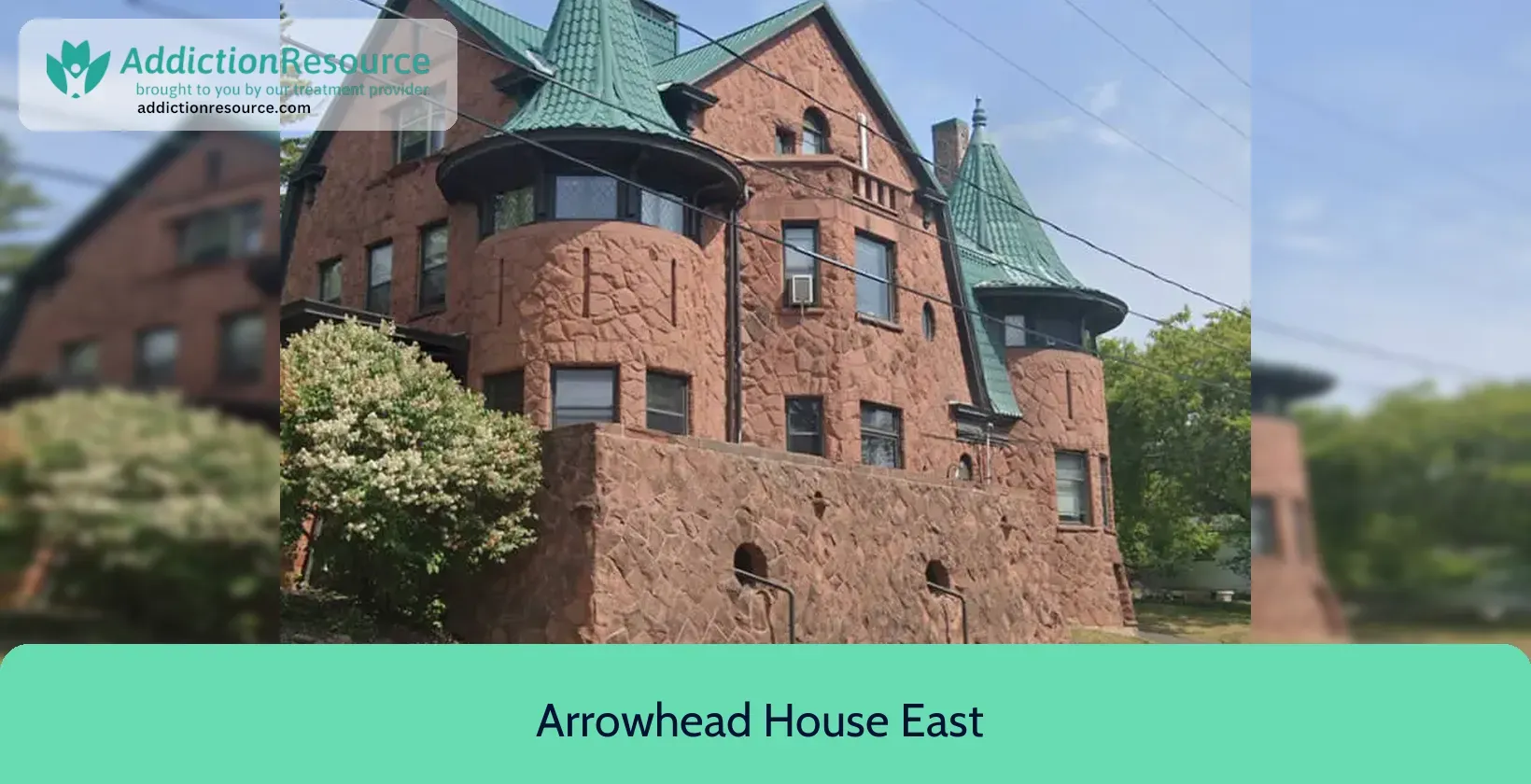Arrowhead House East – Intensive Resdential Treatment Serv – Duluth, Minnesota in Duluth Overview
Since 1979, Arrowhead House East, located in Duluth, Minnesota, has been dedicated to providing comprehensive addiction and mental health care for adults. The facility is renowned for its individualized approach to treatment, ensuring that each client receives personalized care tailored to their specific needs.
At Arrowhead House East, the staff provides 24-hour care, creating a safe and supportive environment that simultaneously promotes independence and self-sufficiency. The multidisciplinary team at the facility works diligently to offer a broad range of services designed to support clients in all aspects of their recovery journey.
Among the many services provided are transportation and respite care, which are crucial for maintaining client accessibility and providing necessary breaks for caregivers. The facility also offers assistance with activities of daily living, ensuring that clients can manage their personal care and routine tasks effectively. Additionally, Arrowhead House East focuses on living skills development, encompassing employment support, medication management, and cooking skills, all of which are essential for fostering long-term independence and enhancing quality of life.
Arrowhead House East’s commitment to delivering personalized, comprehensive care in a supportive and safe environment underscores its long-standing dedication to promoting recovery and mental well-being for adults.
Hope Without Commitment
Find the best treatment options. Call our free and confidential helpline
Most private insurances accepted
Treatment Options
The facility offers multiple levels of care, such as:
- Mentoring/peer support
- Housing services
The center treats the following addictions and co-occurring disorders:
- Clients with co-occurring mental and substance use disorders
- Persons 18 and older with serious mental illness (SMI)
- Screening for tobacco use
- Comprehensive mental health assessment
- Comprehensive substance use assessment
Treatment Modalities
Whether it’s a marriage or another committed relationship, intimate partnerships hold immense significance in one’s life. Substance addiction profoundly impacts both partners, just as rehabilitation and recovery do. Couples therapy and other relationship-focused treatments play a crucial role in uncovering addiction triggers and fostering healthy habits to sustain sobriety.
Integrated Mental and Substance Use Disorder treatment is a comprehensive approach to treating individuals with both mental health and substance use disorders. It aims to address both conditions simultaneously through a coordinated and integrated approach. The goal is to improve overall well-being and reduce the risk of relapse.
Activity therapy is a therapeutic method aimed at aiding individuals in their journey to overcome physical dependencies or emotional hurdles. This therapeutic approach primarily seeks to engage individuals in imaginative activities that encourage favorable shifts in their thought processes. Activity therapy can be administered through individual sessions with a therapist or within a group context. Its overarching goal is to mitigate stress and anxiety while nurturing enhanced self-assurance and refined social interaction abilities.
Tobacco Cessation Counseling is a specialized form of guidance and support aimed at helping individuals quit tobacco use. Through a combination of motivational strategies, behavioral techniques, and education on the health risks associated with tobacco, trained counselors assist users in understanding their addiction, developing a personalized quit plan, and navigating the challenges of withdrawal and relapse prevention. This counseling approach can significantly increase the likelihood of successfully quitting and maintaining a tobacco-free lifestyle.
Conditions Treated
Mental health treatment
Mental health services are essential during treatment for drug and alcohol addiction, whether you receive treatment in an inpatient or outpatient setting. While receiving inpatient care, you can expect to have round-the-clock access to mental health therapists and medical staff. Additionally, you will likely receive a number of different therapies and mental health options like individual and group counseling, addiction and relapse prevention education, and coping skills training.
Alcoholism
Alcohol addiction is a condition where someone feels a strong and uncontrollable urge to drink alcohol, often leading to negative effects on their health, relationships, and daily life. To assist individuals grappling with alcohol addiction, various strategies exist. Initially, supervised detoxification may be necessary to ensure a safe cessation of alcohol consumption. Following this, counseling and therapy play a crucial role in addressing the psychological facets of the addiction. Engaging in support groups can also offer a sense of camaraderie and comprehension.
Substance use treatment
Substance use rehabilitation is a structured program aimed at assisting individuals in overcoming their dependencies on drugs or alcohol. Through a combination of medical detoxification, counseling, and various therapeutic approaches, these programs strive to address the physical and psychological aspects of addiction. The goal is to equip individuals with the knowledge, skills, and support necessary to attain lasting sobriety, while also working to identify and address the underlying issues contributing to substance misuse. By fostering a supportive environment, substance use rehabilitation centers provide a pathway towards a healthier, substance-free life.
Levels Of Care
Hospital inpatient treatment
Residential treatment programs provide housing, meals, and substance abuse treatment, offering patients an environment dedicated entirely to their recovery, distinct from their everyday life. While some rehab facilities concentrate on short-term stays lasting a few days to a couple of weeks, others emphasize long-term care spanning several weeks to months. Many centers offer both, customizing the treatment based on each patient’s unique needs.
Halfway house
A sober living home provides a supportive environment for individuals recovering from substance abuse. Distinct from inpatient rehab centers, it prioritizes a drug-free living without continuous medical oversight. Residents follow specific rules, including curfews and required group sessions, and may undergo random drug screenings. This setting merges autonomy with responsibility, aiding residents in their return to society, fostering coping mechanisms, and upholding sobriety alongside peers facing comparable recovery journeys.
Payment Options
- Medicaid
- Private health insurance
- Cash or self-payment
License and Accreditation
- SAMHSA certification for opioid treatment program (OTP)
Ancillary Services
- Diet and exercise counseling
- Education services
- Family psychoeducation
- Illness management and recovery
- Psychosocial rehabilitation services
- Suicide prevention services
- Vocational rehabilitation services

 Authored by
Authored by  Reviewed by
Reviewed by 


